Article
Breast Cancer, Chemotherapy, & HF: The Long-term Effects of Epirubicin
Author(s):
How do the benefits of epirubicin against breast cancer stack up against the risk of late-onset heart failure?
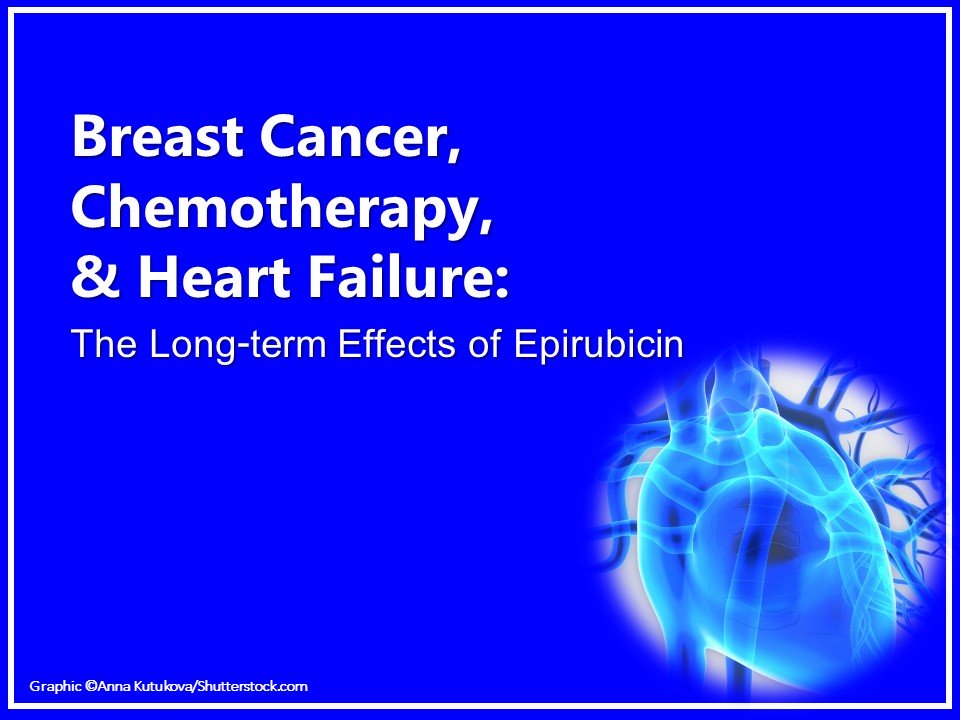
Breast cancer is the most prevalent cancer in women and anthracycline-based chemotherapy, epirubicin in particular, is one of the most effective treatments for breast cancer. Recent guidelines published in the US and in Europe identify treatment with anthracyclines as a risk factor for heart failure.1,2 Authors of a new study point out that the risk of lateâonset HF is debatable and mainly based on observational studies; the objective of this study was to evaluate the effect of anthracyclineâbased chemotherapy on longâterm risk of clinical HF.
Please click here for first slide.
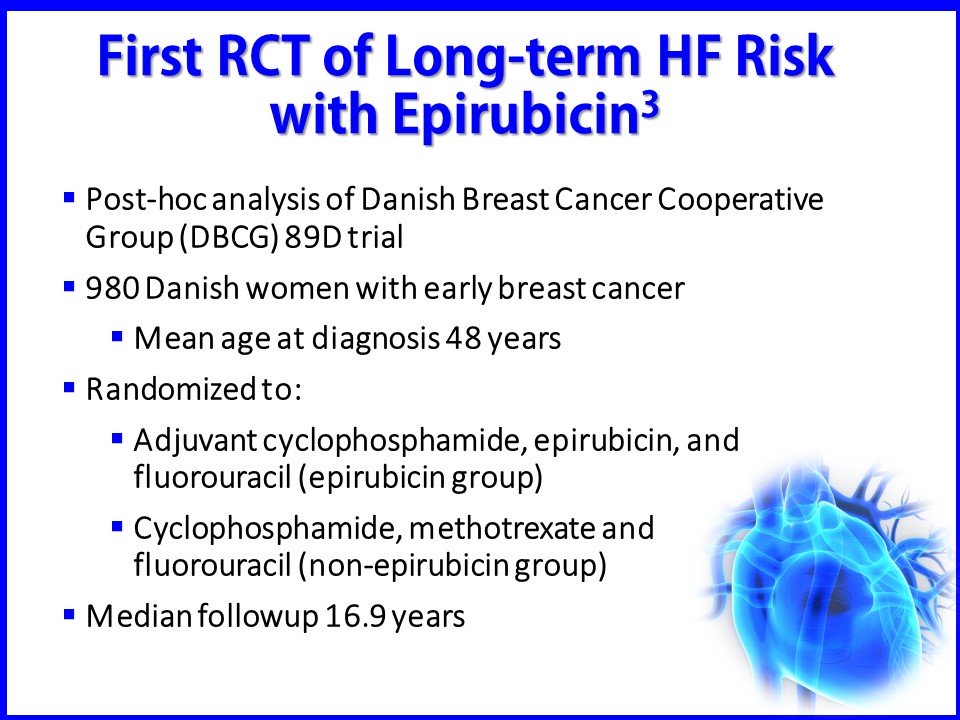
The post-hoc analysis included 980 Danish women with early breast cancer (mean age at diagnosis 48 years); patients were randomized to recieve combination chemotherapy that included or did not include epirubicin. Median followup 16.9 years.
Please click here for next slide.
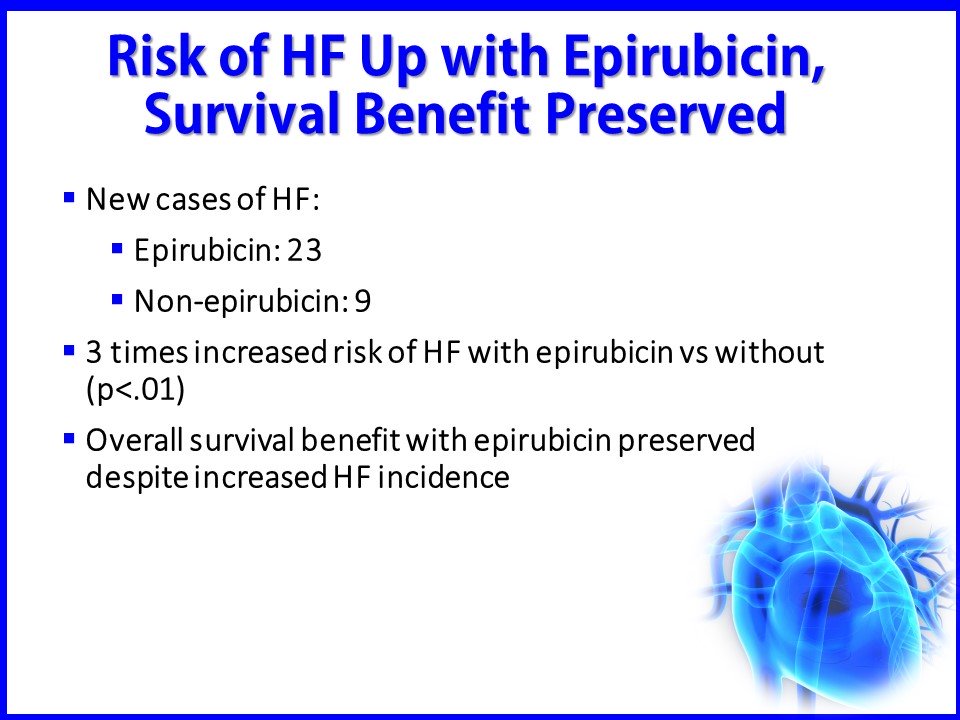
Risk of HF was 3 times as high in the epirubicin group vs non-epirubicin group (p<.01); however, overall survival benefit with epirubicin was preserved despite increased HF incidence.
Please click here for next slide.
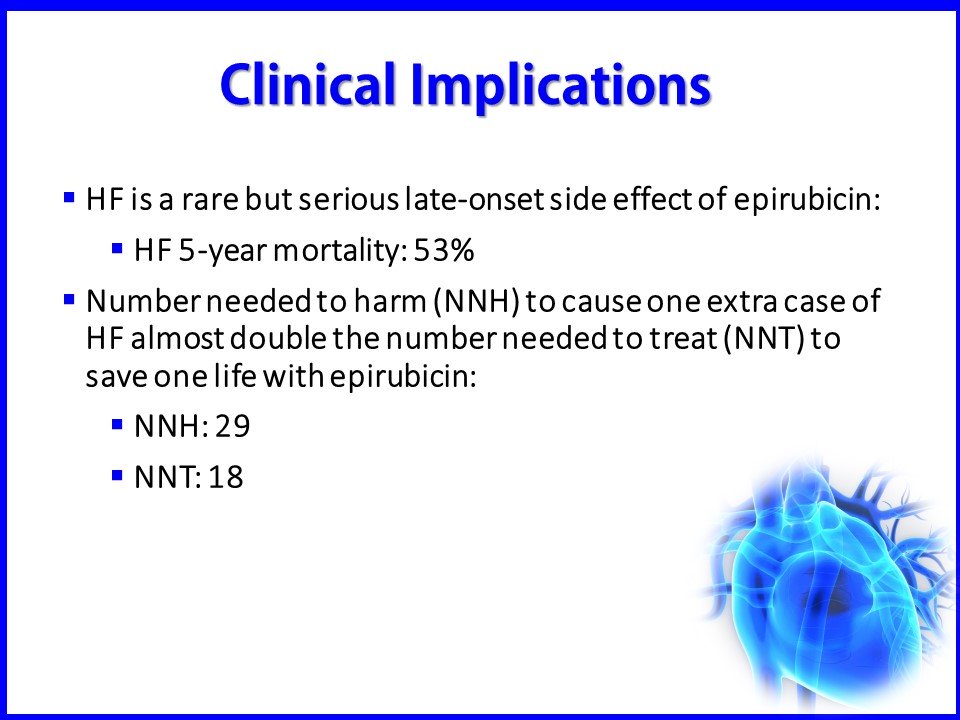
The bottom line: The number needed to harm to cause one extra case of HF was almost double the number needed to treat to save one life with epirubicin.
Please click here for Take Home Points
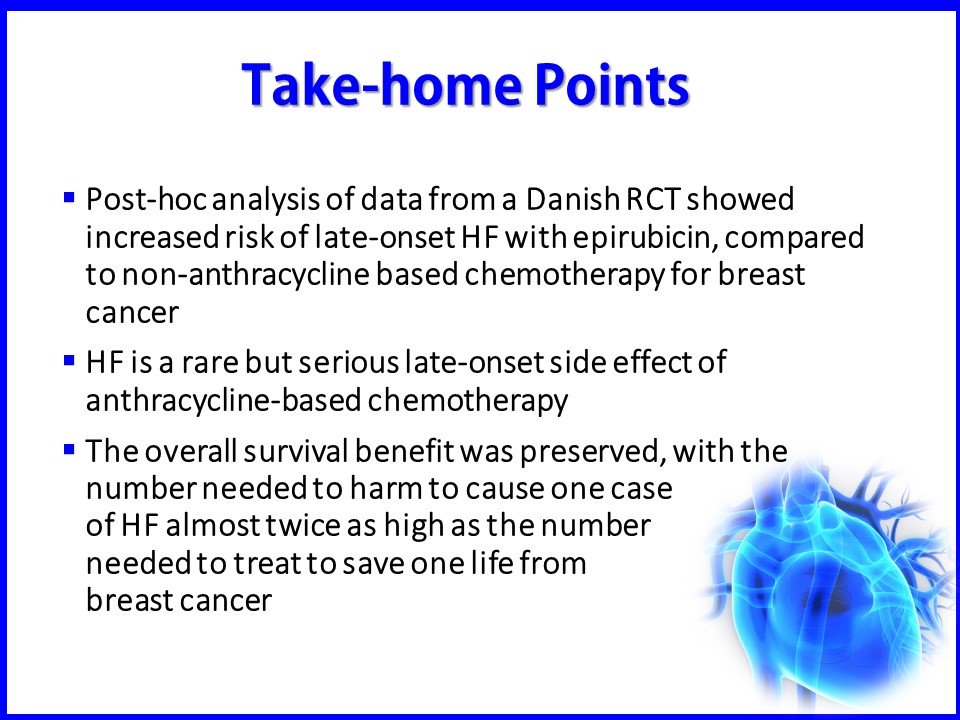
- Post-hoc analysis of data from a Danish RCT showed increased risk of late-onset HF with epirubicin, compared to non-anthracycline based chemotherapy for breast cancer
- The overall survival benefit was preserved, with the number needed to harm to cause one case of HF almost twice as high as the number needed to treat to save one life from breast cancer





